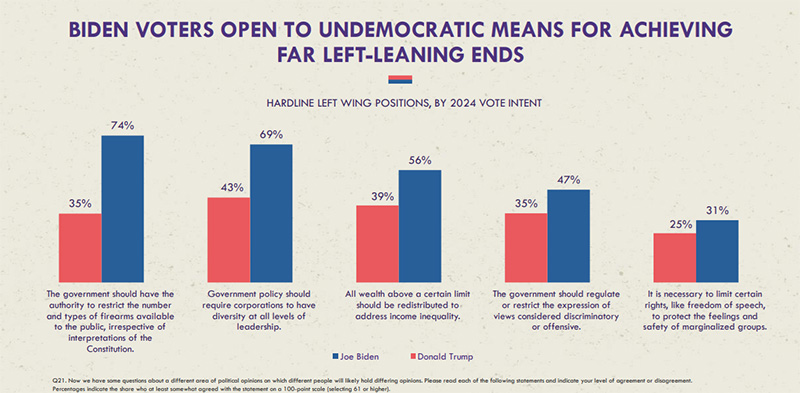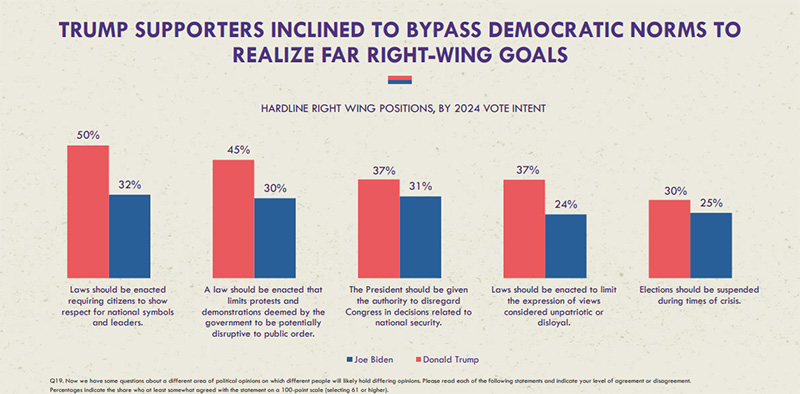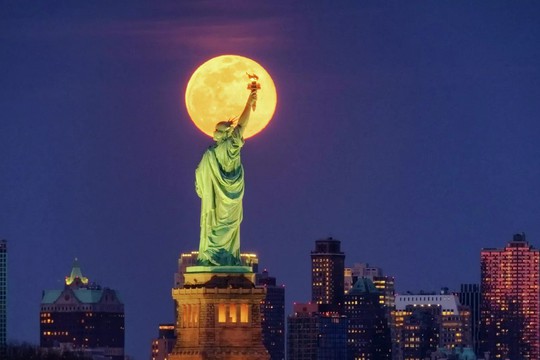An increasing number of citizens have lost faith in our constitutional system and now view violence as warranted to silence those with opposing views. It is a crisis of faith that represents the greatest possible threat to our Republic. The loss of faith and fealty constitutes one of the greatest crises that our nation has faced since its foundation, notes Jonathan Turley, the Shapiro chair of Public interest law at George Washington University.
A recent startling poll shows that a majority of voters not only view the opposing party as a threat to the nation but justifying violence to combat their agenda.


The poll captures a crisis of faith that I have been writing about for over a decade as an academic and a commentator. Many now question democracy as a sustainable system of government. It represents the single greatest threat to this nation: a citizenry that has lost faith not just with our system of government but with each other.
The polls by the University of Virginia Center for Politics shows a nation at war with itself. Fifty-two percent of Biden supporters say Republicans are now a threat to American life while 47 percent of Trump supporters say the same about Democrats.
Among Biden supporters, 41 percent now believe violence is justified “to stop [Republicans] from achieving their goals.” An almost identical percentage, 38 percent, of Trump supporters now embrace violence to stop Democrats.
Not surprisingly, many of these people have lost faith in democracy. Some 31 percent of Trump supporters believe that the nation should explore alternative forms of government. Roughly a quarter (24 percent) of Biden supporters also question the viability of democracy.
Faith is the one thing that no system of government can do without. Without faith in the underlying values of a constitutional system, authority rests on a mix of coercion and capitulation.
Politicians have also contributed to this crisis of faith in challenging constitutional values or core institutions. Members like Rep. Alexandria Ocasio-Cortez (D-N.Y.) has questioned the need for a Supreme Court.
Others like Sen. Elizabeth Warren (D-Mass) have called for the packing of the Supreme Court to simply create an immediate liberal majority.
Senate Majority Leader Charles Schumer (D-NY) thrilled his base by going to the steps of the Supreme Court to declare “I want to tell you, Gorsuch. I want to tell you, Kavanaugh. You have released the whirlwind and you will pay the price! You won’t know what hit you if you go forward with these awful decisions.”
It is little surprise that one man showed up at the home of Justice Bret Kavanaugh to kill him for his “awful decisions.”
Conversely, former President Donald Trump has regularly denounced his political opponents as “traitors” and “enemies of the people.” He recently declared “If you go after me, I’m coming after you!”
With leaders engaging in such reckless rhetoric, it is hardly surprising that the Constitution itself is now viewed as threat to our nation rather than the very thing that defines us. It is designed to restrain the majority and protect those who are the least popular in our society.
If nothing else, the Constitution has one thing to recommend it: we are still here. It is a Constitution that has survived economic and political upheavals. It survived a Civil War in which hundreds of thousands were killed.
The question is whether we have reached a time when the things that divide us will now overcome what unites us. This is not our first age of rage. Indeed, at the start of our Republic, rivaling parties were not just figuratively trying to kill each other; they were actually trying to kill each other through laws like the Alien and Sedition Acts. Thomas Jefferson would refer to the term of his predecessor John Adams as “the reign of the witches.”
Yet, that history is no guarantee that it can survive our current age of rage. The relentless attacks on the constitution from the political, media, and academic elite has turned many into constitutional atheists. Yet, the future of our constitutional system may rest with the rising number of constitutional agnostics — those citizens who are simply disconnected or disinterested in the defense of our founding principles, Jonathan Turley stresses.
read more in our Telegram-channel https://t.me/The_International_Affairs

 10:03 28.10.2023 •
10:03 28.10.2023 •























